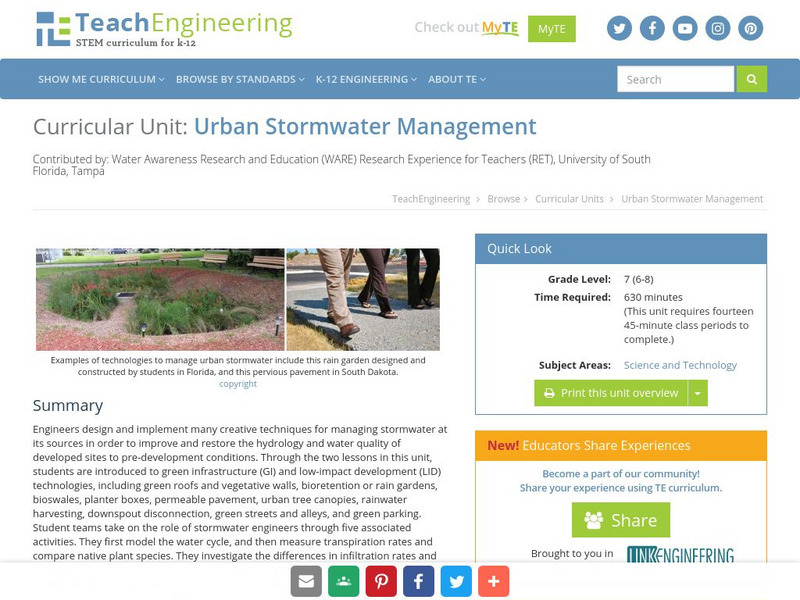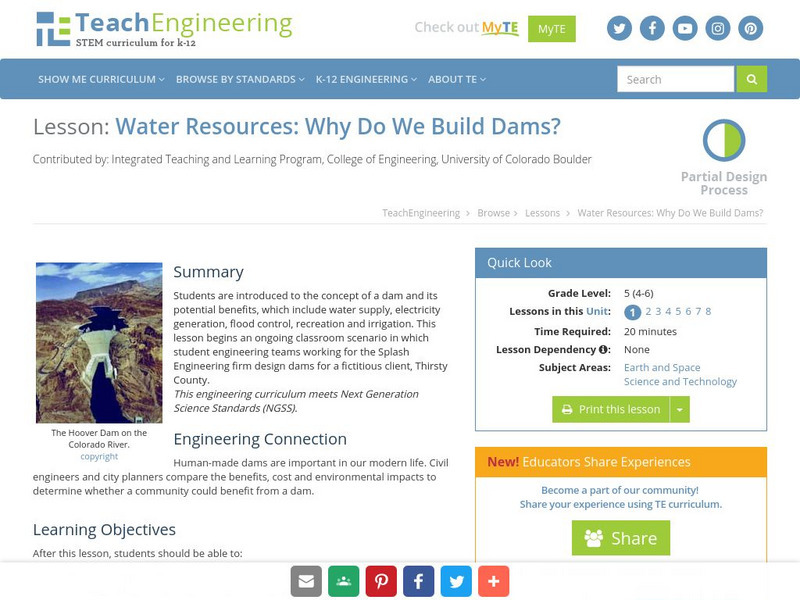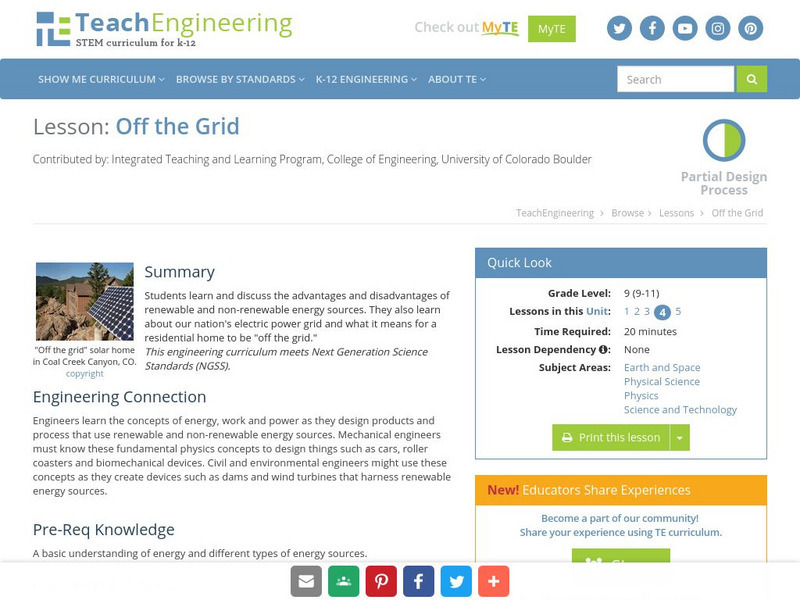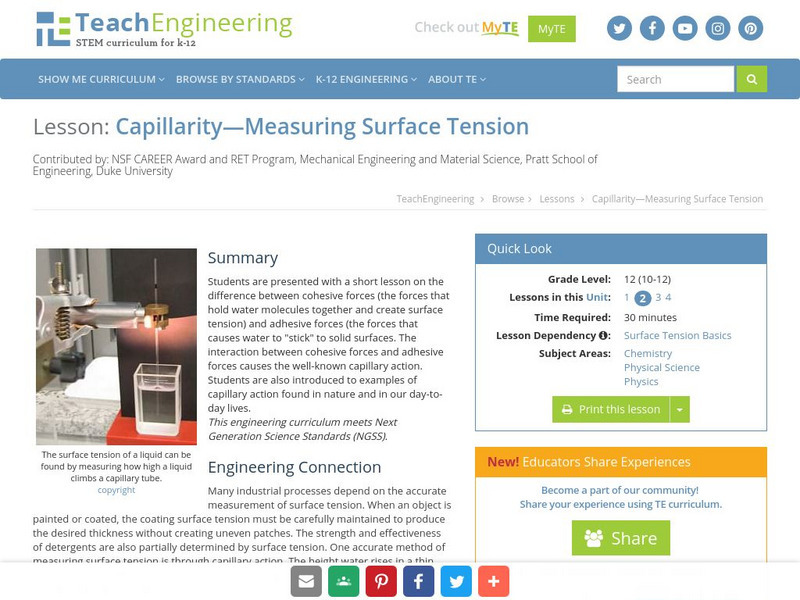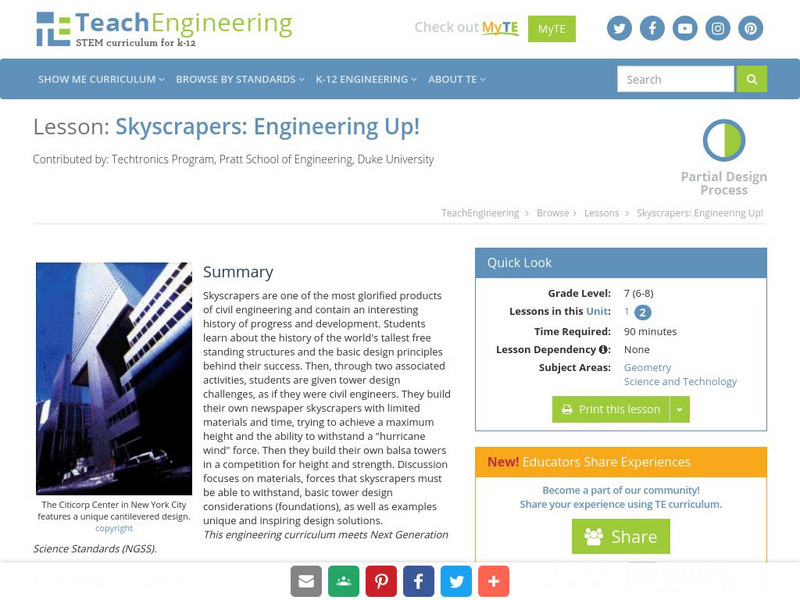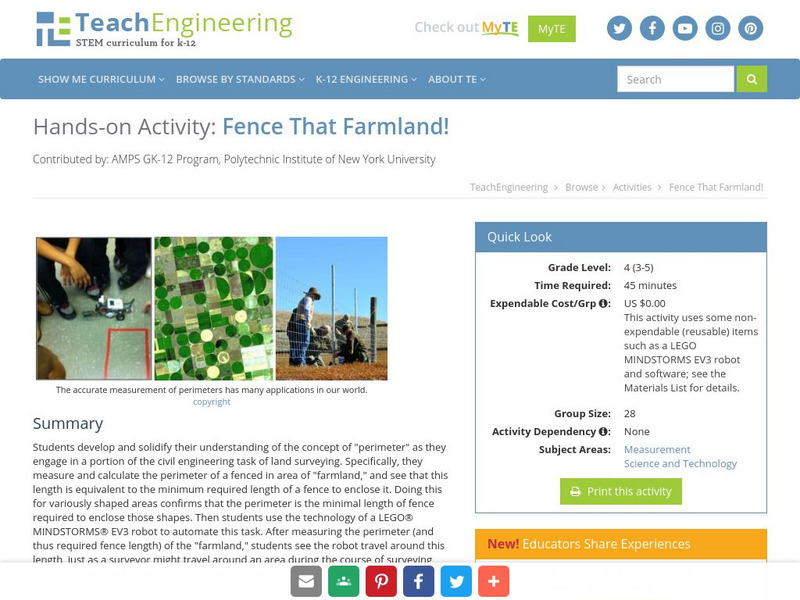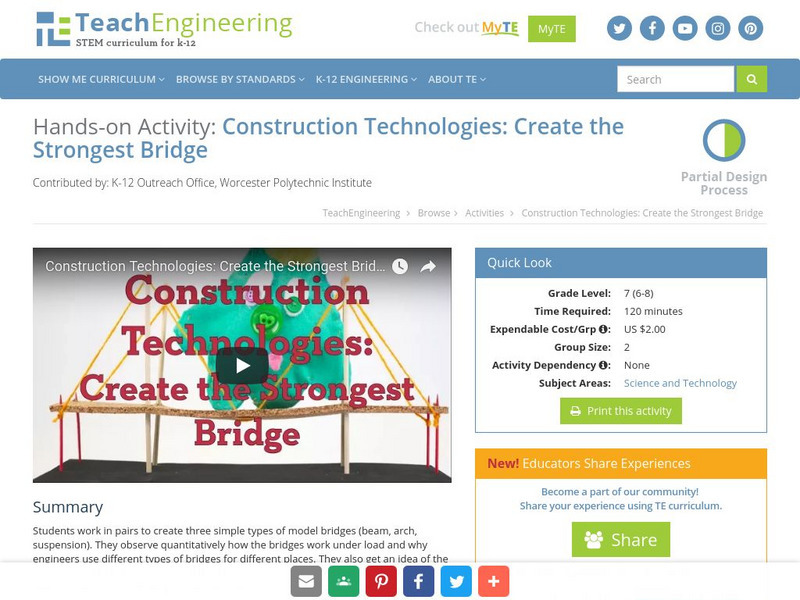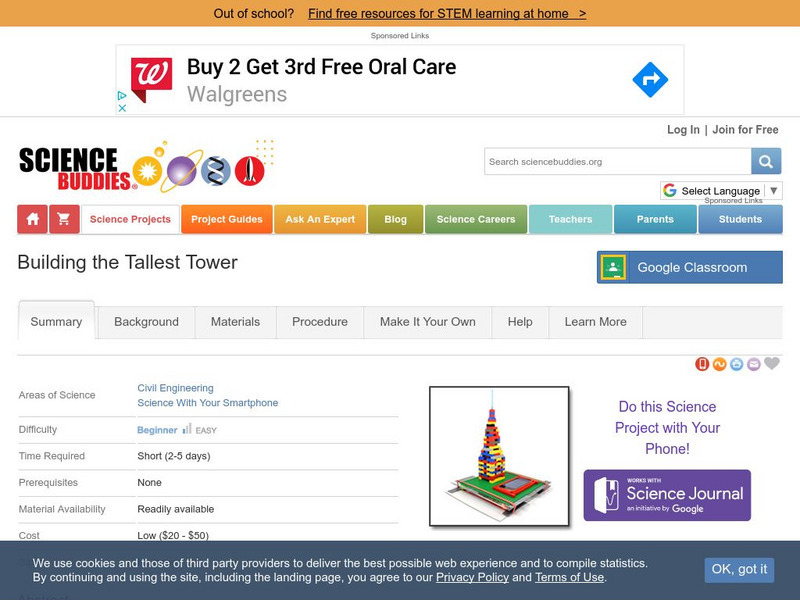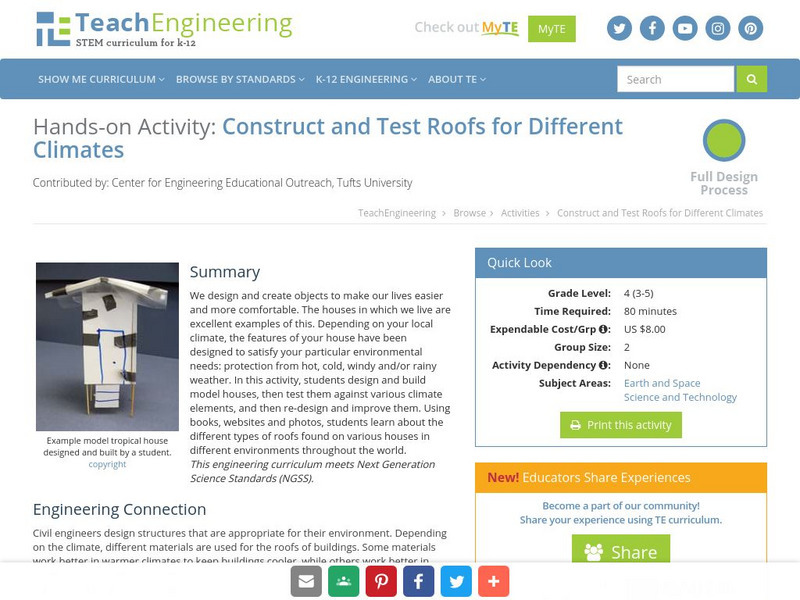TeachEngineering
Teach Engineering: Urban Stormwater Management
Through the two lessons in this unit, students are introduced to green infrastructure and low-impact development technologies. Student teams take on the role of stormwater engineers through five associated activities.
TeachEngineering
Teach Engineering: Why Do We Build Dams?
Students are introduced to the concept of a dam and its potential benefits, which include water supply, electricity generation, flood control, recreation and irrigation. This instructional activity begins an ongoing classroom scenario in...
TeachEngineering
Teach Engineering: Off the Grid
Young scholars learn and discuss the advantages and disadvantages of renewable and non-renewable energy sources. They also learn about our nation's electric power grid and what it means for a residential home to be "off the grid."
TeachEngineering
Teach Engineering: Passive Solar Design
Students are introduced to passive solar design for buildings--an approach that uses the sun's energy and the surrounding climate to provide natural heating and cooling. They learn about some of the disadvantage of conventional heating...
TeachEngineering
Teach Engineering: Hurricanes
Middle schoolers learn what causes hurricanes and what engineers do to help protect people from destruction caused by hurricane winds and rain. Research and data collection vessels allow for scientists and engineers to model and predict...
TeachEngineering
Teach Engineering: Capillarity Measuring Surface Tension
Students are presented with a short lesson on the difference between cohesive forces (the forces that hold water molecules together and create surface tension) and adhesive forces (the forces that causes water to "stick" to solid...
TeachEngineering
Teach Engineering: Skyscrapers: Engineering Up!
Skyscrapers are one of the most glorified products of Civil Engineering and contain an interesting history of progress and development. In this lesson, the students will learn about the history of the world's tallest free standing...
TeachEngineering
Teach Engineering: Natural and Urban Stormwater Water Cycles
Through an overview of the components of the hydrologic cycle and the important roles they play in the design of engineered systems, students' awareness of the world's limited fresh water resources is heightened. The lesson lays the...
TeachEngineering
Teach Engineering: Green Infrastructure & Low Impact Development Technologies
Students are introduced to innovative stormwater management strategies that are being used to restore the hydrology and water quality of urbanized areas to pre-development conditions.
University of Florida
University of Florida: Civil and Coastal Engineering
This site is about civil and coastal engineering. The site has links to research, people, programs, news, etc.
Other
World Wide Web Virtual Library: Civil Engineering
This site is an online library of information about civil engineering.
TeachEngineering
Teach Engineering: Survive That Tsunami!
Students use a table-top-sized tsunami generator to observe the formation and devastation of a tsunami. They see how a tsunami moves across the ocean and what happens when it reaches the continental shelf. Students make villages of model...
TeachEngineering
Teach Engineering: Breaking Beams
Students learn about stress and strain by designing and building beams using polymer clay. They compete to find the best beam strength to beam weight ratio, and learn about the trade-offs engineers make when designing a structure.
TeachEngineering
Teach Engineering: Implementing Biomimicry and Sustainable Design
This unit provides students with an opportunity to study ecological relationships with an emphasis on the Sonoran Desert. Students appreciate the complexity and balance that supports the exchange of energy and matter within food webs....
TeachEngineering
Teach Engineering: All About Water!
Students learn about the differences between types of water (surface and ground), as well as the differences between streams, rivers and lakes. Then, they learn about dissolved organic matter (DOM), and the role it plays in identifying...
TeachEngineering
Teach Engineering: Shapes of Strength
Students are introduced to brainstorming and the design process in problem solving as it relates to engineering. They perform an activity to develop and understand problem solving with an emphasis on learning from history. Using only...
TeachEngineering
Teach Engineering: Fence That Farmland!
Students develop and solidify their understanding of the concept of perimeter as they engage in a portion of the civil engineering task of land surveying, using the technology of a LEGO MINDSTORMS NXT robot to automate this task.
TeachEngineering
Teach Engineering: Construction Technologies: Construct the Strongest Bridge
In this activity, students will work in pairs to create three simple types of bridges. They will observe quantitatively how the bridges work under load and why engineers use different types of bridges for different places. They also will...
Science Buddies
Science Buddies: Building the Tallest Tower
Skyscrapers are impressive structures. What does it take to design a building so tall? Engineers use strong materials and innovative design to push the limits of gravity. In this experiment you will use LEGO components, rubber balls, and...
TeachEngineering
Teach Engineering: Construct and Test Roofs for Different Climates
We design and create objects to make our lives easier and more comfortable. The houses in which we live are an excellent example of this. Depending on your local climate, the features of your house will be different to satisfy your...
Science Buddies
Science Buddies: Solving a 'Windy' Problem
The wind is a powerful force, enough to erode whole hillsides over time. Building structures in windy environments challenge civil engineers with special safety concerns. A wall in a windy area can either shield you from the cold or fall...
Science Buddies
Science Buddies: Build an Earthquake Resistant House
In this project, young scholars will build model earthquake-resistant buildings and measure their movement during a simulated earthquake using a mobile phone and a sensor app.
National Humanities Center
National Humanities Center: Teacher Serve: Roads, Highways, and Ecosystems
An interesting look from the National Humanities Center at the progression of roads in America. Author looks at the ecological impact of the road system.
TryEngineering
Try Engineering: Pipeline Challenge
Students become "engineers" as they learn how to develop pipeline systems for transportation. In this lesson, they work in teams to design, develop, and execute a pipeline plan to transport both a golf ball and a ping pong ball from one...


